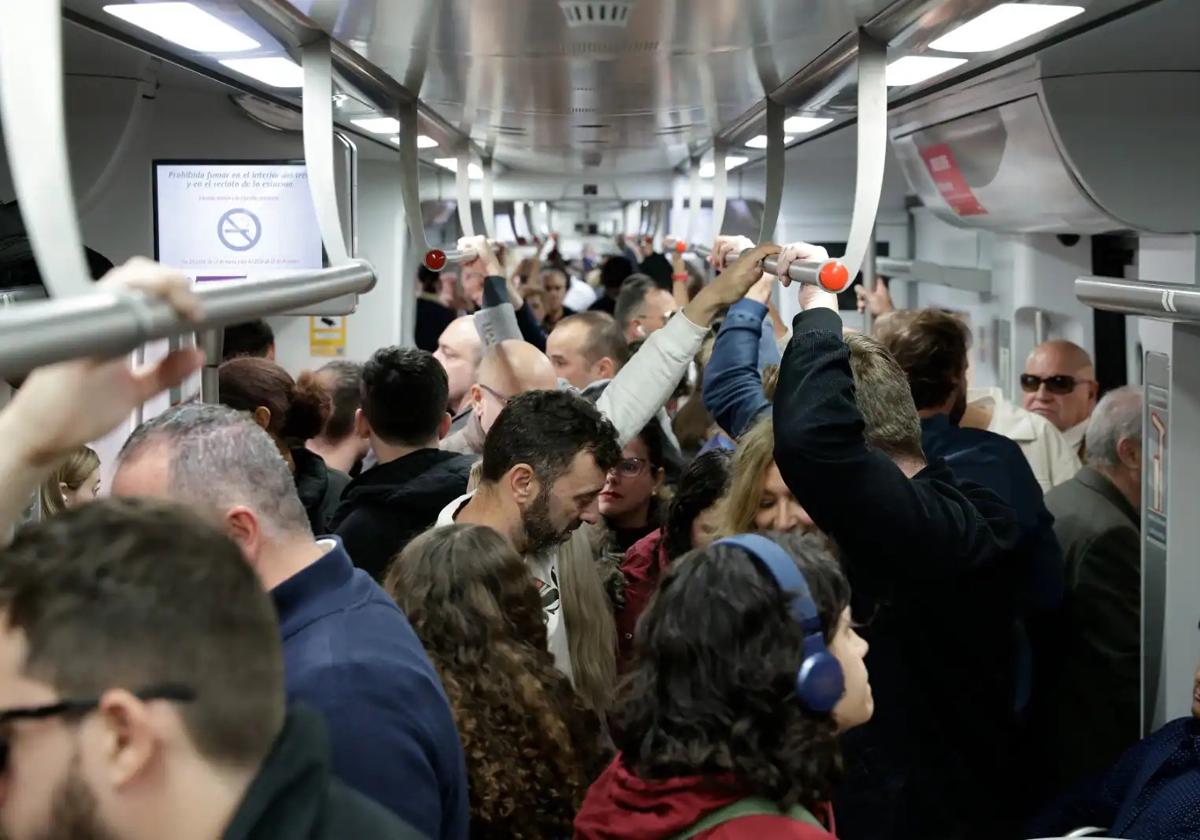

Sections
Highlight

In a climate of public, institutional and political clamour along the Costa del Sol for the coastal train service to be extended and improved, on the last day of campaigning for the European elections, the Spanish government has now changed its position and says it is willing to sit down with local authorities to talk about the most urgent and necessary transport infrastructure in Malaga province.
The national Ministry of Transport has announced that it will convene a working group with the Andalucían regional government and the town councils of the Costa del Sol to "explore the social, economic and environmental viability" of the project, according to the SER radio station.
However, as of today (Friday), none of the town halls, the regional government, nor the provincial authority have received any news about this new stance, SUR has been able to confirm after enquiring with all of them.
A spokesman for the ministry, headed by Óscar Puente, confirmed to SUR that the first meeting will be convened "soon, within a reasonable period of time", and the main objective will be to go deeper into the information available so far, since the report provided by the city council (one drawn up months ago by the Malaga consultancy ARCS with the support of the city and provincial authority, as well as Unicaja) is considered "insufficient". "The ministry's technicians are asking for more specific information."
However, they avoid mentioning the previous studies conducted during Íñigo de la Serna's tenure as Minister of Public Works (from the PP political party) and carried out by the state-owned consultancy Ineco. "There still isn't even a demand analysis. We are going to delve deeper and see if we can move it forward or not, and with the necessary reports, we will determine if there is demand and how it can be implemented. Everyone needs to get involved," they add, referring to the local institutions that have been campaigning for this infrastructure for months.
At this point, they highlight the need to analyse three major factors: the social aspect, considering the population affected; the economic aspect, based on the cost of the infrastructure itself; and the environmental aspect, to take into account the impact it would have on nearby residential areas if built on the surface, or its effect on the surroundings if constructed underground.
The Ministry of Transport considers that the study recently carried out by the Malaga consultancy ARCS, which proposed a new platform, separate from the current Cercanías, for a high-performance train providing a competitive alternative to taking the car from the airport to Marbella, is "insufficient". That is why they have decided to convene all parties to obtain more information and to be able to move forward with a viable proposal for a coastal train.
However, such a radical change in the government's stance, where even the Minister of Transport, Óscar Puente, publicly denied the existence of prior studies (which were later proven to exist), and the very willingness of the current government to proceed, hasn't even included a courtesy call to the mayors of Malaga city or the Costa del Sol.
According to SUR sources, neither the regional government, the town councils nor the provincial authority have received any information about this meeting. "We haven't been contacted," agree spokespeople from several of these institutions, questioning if there is any date set for this initial meeting.
On the contrary, they see it as a "purely electoral" move, made on the last day of the European election campaign and 48 hours before the vote. A similar move, they recall, was made with the announcement of 100 million euros for the Axarquia desalination plant in the previous elections.
"They have taken too long; they are nervous because in Malaga there is a public clamour for the coastal train that has overwhelmed them," says another institutional source. To which several of them add: "Let's see what they say from Monday onwards," they add, referring to the day after the election results.
Publicidad
Publicidad
Publicidad
Publicidad
Esta funcionalidad es exclusiva para suscriptores.
Reporta un error en esta noticia
Comentar es una ventaja exclusiva para registrados
¿Ya eres registrado?
Inicia sesiónNecesitas ser suscriptor para poder votar.